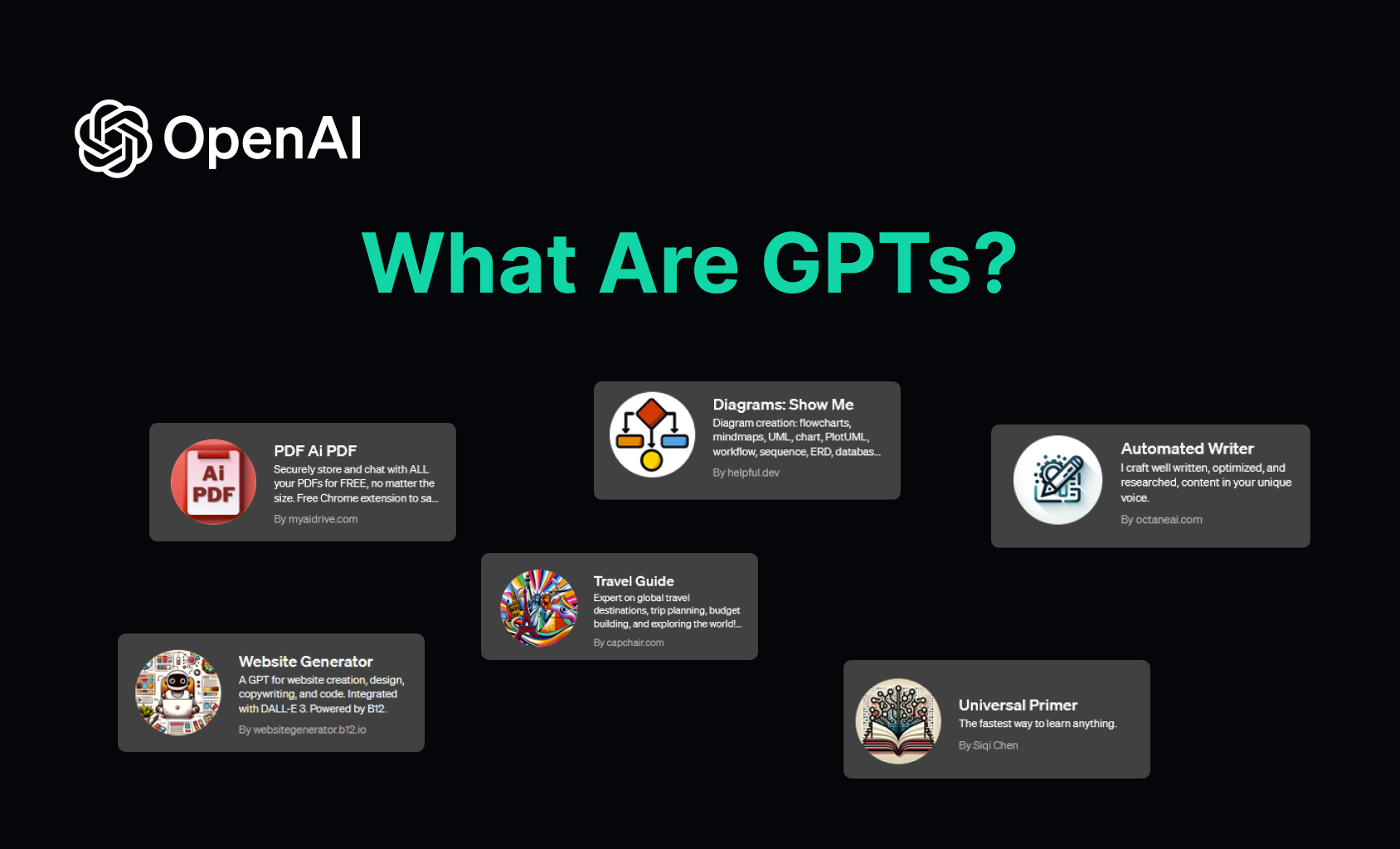As we navigate through 2024, the landscape of artificial intelligence continues to evolve at an unprecedented pace. Moreover, a significant part of this AI revolution is driven by OpenAI’s introduction of GPTs an the GPT Store, which have dramatically changed the way humans interact with machines. This guide delves into how these powerful AI tools differ from their predecessors and how you can harness their power.
Understanding GPT Technology
Generative Pre-trained Transformers (GPT) are advanced AI models that enable extensive customization without any coding, broadening their accessibility. Training on vast amounts of data enables these models to understand language nuances and generate coherent, contextually relevant responses.
Key Differences: ChatGPT, GPT, and GPTs
ChatGPT: ChatGPT was originally launched as a conversational AI that could simulate human-like interactions. For more details, see our tool review on ChatGPT.
GPT: (Generative Pre-trained Transformer) refers to the technology behind models like GPT-3 and GPT-4, which can perform a variety of natural language processing tasks.. Learn more about the evolution of these models and the history of GPT.
GPTs: These are custom versions of the technology, tailored for specific tasks or industries, enhancing both their utility and applicability. Discover how these custom versions are used in industries by visiting our section on GPT applications.
Advantages
The continued development of GPTs has brought several advantages that are more pronounced than ever before:
Personalization Without Coding: Custom-GPT can provide tools for users to create bespoke AI solutions that meet their unique requirements, democratizing AI customization.
Cognitive Flexibility: These models adapt to various domains and tasks, showcasing remarkable versatility across different use cases.
Integration Options: Can easily integrate into existing systems, enhancing the capabilities of various applications through APIs and plugins.
Shareability and Collaboration: With advancements in AI, GPTs now support enhanced collaborative features, making them ideal for team-based projects and sharing within communities.
Practical Applications of GPTs
In 2024, GPTs are utilized across diverse fields, from creating personalized customer service experiences to generating dynamic content and automating routine tasks. They provide significant value in:
Content Creation: Assisting in generating articles, blogs, and social media content.
Customer Support: Automating responses in customer service environments.
Education: Offering personalized learning experiences and tutoring services.
Learn more about how GPTs are revolutionizing these sectors by exploring our detailed exploration of GPTs in education.
Most Used GPTs
Challenges and Future Outlook
Despite their benefits, GPTs face challenges such as ethical concerns, biases in training data, and the ongoing need for updates to keep up with new information. For further reading on how these challenges are being addressed, check out our article on ethical AI practices.
The GPT Store: A Marketplace for Innovation
Looking ahead, the upcoming GPT Store promises to be a vibrant marketplace where developers can share and monetize their custom GPT s. This platform will not only enhance the accessibility of GPTs but also encourage a collaborative environment for AI innovation.
Creating and Utilizing GPTs
2024 offers robust tools for creating custom GPTs through platforms like OpenAI’s GPT Builder. Users can tailor their models to their specific needs and integrate them seamlessly into their operations, pushing the boundaries of what AI can achieve in personal and professional contexts.
For a step-by-step guide on how to use the GPT Builder, refer to our tutorial on creating custom GPTs.
Frequently Asked Questions
- How can I access Custom GPTs?
Access is typically through a ChatGPT Plus subscription, which provides advanced features and capabilities. - Can the models generate images?
Yes, the latest models are equipped to handle multimodal tasks, including text and image generation. - What are the privacy options for GPTs?
Users can set their models to be public, private, or shareable within specific groups, depending on their needs.





